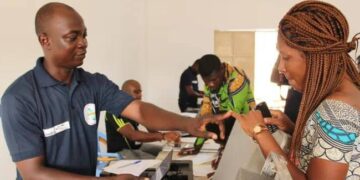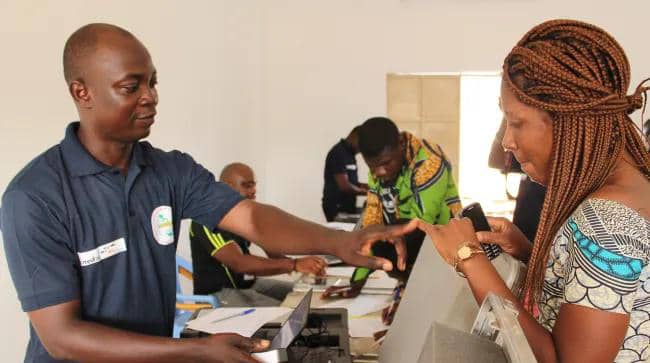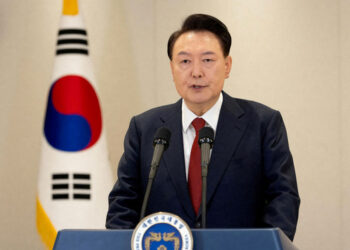By Enyichukwu Enemanna
Togolese have trooped out in large numbers to participate in ongoing voter registration exercise to vote in the country’s parliamentary and local elections coming up later this year.
This comes amidst myriads of challenges, including missing registration papers, broken registration machines and growing crowds interested in casting their ballots.
Togo’s opposition has called for massive registration, hoping to unseat President Faure Gnassingbe, who has ruled the country since 2005.
He took over the reign of power following the death of his father General Gnassingbe Eyadema, who ruled Togo with an iron fist for 38 years.
“This is the first time that I want to vote and I want to get my voter card,” a Togolese student Sarath Sidibe who has unsuccessfully attempted to register for three days said. “I want things to change in this country.”
Since he took over power, Gnassingbe has won every election in a manner opposition says is “fraudulent”.
Across the country, including the capital Lome, the exercise has garnered massive turn out of potential voters.
Gnassingbe said elections will hold December without specifying date.
The main opposition political parties boycotted the 2018 legislative elections and the electoral census, after denouncing “irregularities”.
But leaders of the main opposition parties have been mobilised for several months, calling on supporters to “massively” get out to sign up.
Since Monday, long queues have formed every day in several centres where voter cards are issued in the capital.
In 2018, Gnassingbe’s party won a majority of 59 seats out of 91 in the National Assembly, after the leaders of the main coalition of 14 parties did not present any candidates.
The opposition coalition decided to boycott after more than a year of political standoff and dozens of violently suppressed protests against a reform authorising the president to run for re-election in 2020 and 2025.
The West African country of around eight million is ranked among the poorest in the world, and is also struggling with attacks from jihadists from across its northern border with Burkina Faso.




































